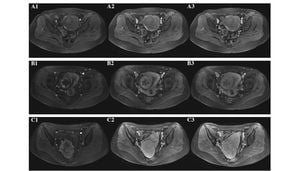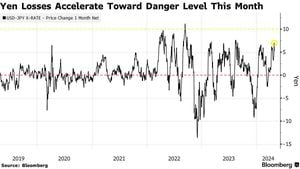Tanzania has confirmed the outbreak of Marburg virus disease following the identification of one positive case. The announcement was made by President Samia Suluhu Hassan during a press briefing on January 20, 2025. This outbreak is notable as it follows the previous one, which occurred almost two years earlier, also in the Kagera Region, resulting in nine cases and six deaths.
The Marburg virus disease (MVD), akin to Ebola, poses significant health challenges, mainly transmitted through fruit bats and other infected animals. Symptoms can escalate swiftly, often resulting in severe hemorrhagic fever and death. Given its severe nature, Tanzania’s health authorities are prioritizing immediate response measures to contain this latest outbreak.
During the press conference, President Hassan confirmed, "Laboratory tests conducted at Kabaile Mobile Laboratory... identified one patient as being infected with the Marburg virus." Fortunately, all 25 other suspected cases tested negative and are under close monitoring. The confirmed case highlights the urgent need for effective surveillance and public health measures.
Direct involvement from global health authorities is also significant. The World Health Organization's (WHO) Director-General, Dr. Tedros Adhanom Ghebreyesus, reaffirmed the organization’s commitment to assisting Tanzania. He noted, "Even though there is no approved treatment or vaccines, outbreaks can be stopped quickly," emphasizing the importance of community response and awareness.
Supporting Tanzania's initiatives, the Africa Centres for Disease Control and Prevention (Africa CDC) has mobilized resources to combat this outbreak. Dr. Jean Kaseya, Director-General of Africa CDC, stated, "Africa CDC stands firmly with Tanzania... we are committing US$ 2 million to bolster immediate response measures including deploying public health experts, strengthening diagnostics, and enhancing case management." This support contrasts with the previous outbreak, where similar international assistance played a pivotal role.
The Kagera Region has become the focus of this outbreak, and health officials are on high alert. Health workers have been identified and monitored for their exposure during the early findings of the disease. The WHO has been instrumental by releasing $3 million from its Contingency Fund for Emergencies to assist Tanzania's health response efforts, allowing for the establishment of treatment facilities and testing centers to monitor and control the spread of the virus.
During the meeting, President Hassan expressed confidence: "We have demonstrated our ability to contain similar outbreaks and are determined to do the same this time around." This reflects the government’s intention to bolster its healthcare system against the backdrop of heightened alert due to the Marburg virus.
Marburg virus, which can have fatality rates up to 88%, propagates primarily through contact with bodily fluids of infected individuals, complicative to public health responses. It is imperative for travelers and local populations to stay informed about health risks, emphasizing hygiene practices and adherence to health advisories supplied by local and global health bodies.
The International Health Regulations mandate countries to report public health emergencies. Given this requirement, the Tanzanian government is working closely with international organizations to refine disease control practices within the region. The Kagera Region acts as a transport hub, which raises concerns about cross-border infection potential to neighboring countries like Rwanda, Uganda, and Burundi.
While previous cases have emerged sporadically, health officials have reiterated the importance of rapid and effective response systems. The previous outbreak was foundational to building local capacities, which President Hassan hopes will mitigate and overcome the existing challenge swiftly.
Experts stress the need for continued vigilance as the disease can circulate unnoticed before symptoms manifest, underscoring the risks to healthcare provider safety. Communities are urged to limit contact with symptomatic individuals and avoid high-risk areas known for bat populations as part of preliminary prevention strategies.
Following WHO's announcement about the outbreak, travelers to Tanzania have been notified through travel health advisories to monitor their health following their return. The WHO has classified the global risk as low but recommends precautionary measures, particularly for individuals who may come in contact with the virus due to their occupation or travel plans.
The declaration by the government, alongside strong partnerships with global health entities, plays a significant role in shaping the response to the current Marburg virus emergency, reinforcing Tanzania's commitment to safeguarding public health. Collaboration remains the cornerstone as authorities work toward containing the spread of MVD and preventing future outbreaks.



